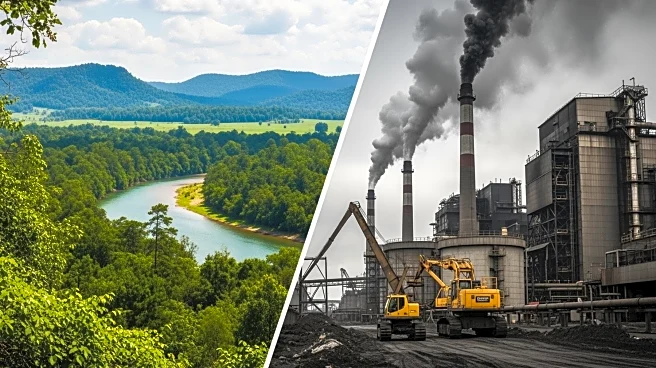What's Happening?
Fossil fuels, including coal, oil, and natural gas, are non-renewable energy sources formed from ancient organic matter. These fuels are composed primarily of hydrocarbons and are a major source of energy worldwide.
The formation of fossil fuels involves complex geological processes over millions of years. Despite their energy efficiency, the extraction and use of fossil fuels pose significant environmental challenges, including greenhouse gas emissions and pollution.
Why It's Important?
Fossil fuels have been the backbone of industrial development, providing reliable energy for electricity, transportation, and manufacturing. However, their environmental impact is a growing concern, with fossil fuel combustion being a major contributor to climate change. The need to transition to cleaner energy sources is urgent to address environmental and health issues. This transition presents economic and technological challenges, particularly for regions and industries dependent on fossil fuels.
What's Next?
The global energy landscape is shifting towards renewable sources, driven by policy initiatives and technological advancements. Efforts to reduce fossil fuel dependency include investments in renewable energy, energy efficiency measures, and carbon capture technologies. The transition is expected to influence energy markets and require strategic planning to ensure energy security and economic stability.
Beyond the Headlines
The transition from fossil fuels involves ethical considerations, such as ensuring a just transition for affected workers and communities. It also raises questions about energy equity and the role of international cooperation in addressing global environmental challenges.










